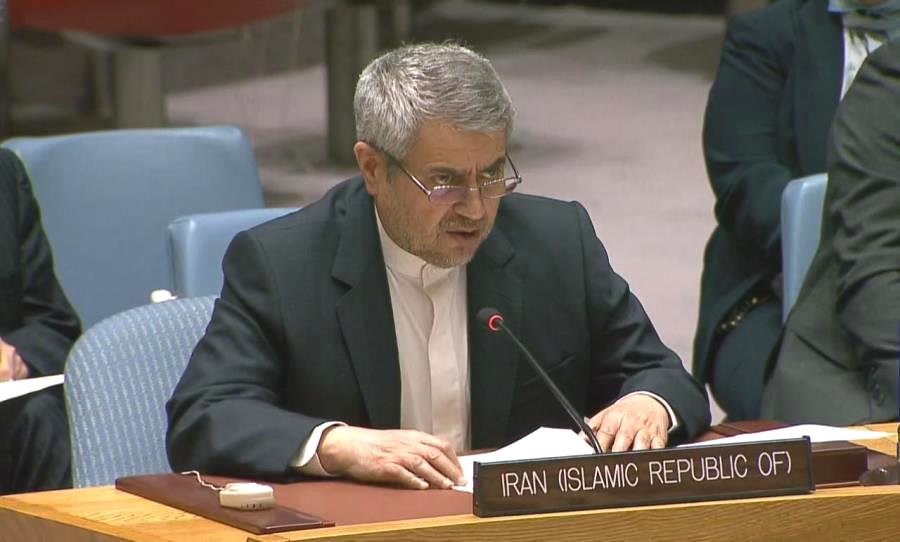Washington using threat as a foreign policy tool: diplomat

TEHRAN - Gholamali Khoshroo, Iran’s ambassador to the UN, said on Monday that the U.S. is using “threats against countries as a tool of foreign policy”.
“Nowadays we are witnessing a new and surprising trend of openly using threats against countries as a tool of foreign policy. One could trace the manifestation of this policy in the UN as well,” Khoshroo told the United Nations General Assembly meeting on “Report of the Special Committee on the Charter of the United Nations and on the Strengthening of the Role of the Organization”.
Following is an excerpt of his remarks posted on the IRNA website:
Nowadays we are witnessing a new and surprising trend of openly using threats against countries as a tool of foreign policy. One could trace the manifestation of this policy in the UN as well. Threatening to cut financial aid to those countries who voted in favor of a UN resolution or warning them against the possible consequences of their vote in the General Assembly by saying: “the US taking the names” is just one example of visible offense to the UN principles. One thing is clear. This trend is weakening the organization, not strengthening it, and runs counter to the very objective of the Charter Committee establishment.
Another discouraging account regarding the UN Charter and international legal order is that, in total disregard to Article 25 of the UN Charter, a permanent member of the Security Council is not only violating council resolution 2231 for the first time in the history of the UN, but also engaging in penalizing nations across the entire world for abiding by that resolution. Today, more than ever, this country is addicted to sanctions and seeing it as a tool in its toolbox in pursuance of its own national interests. The morally wrong and ethically unjustified unilateral measures not only defy the rule of law at the international level but also infringe upon the right to development and lead to the violation of basic human rights.
The Islamic Republic of Iran welcomes the report of the Special Rapporteur on the negative impact of unilateral coercive measures on the enjoyment of human rights contained in document A/73/175. We lend our support to the practical steps that he has suggested and endorse his recommendations. Particularly where he calls upon States to clearly affirm that unilateral sanctions, especially those of a comprehensive nature, in particular when aggravated by secondary sanctions seeking the “economic isolation” of the target country, amount to discrimination against the innocent population of the country concerned, in violation of the prohibition of discrimination enshrined in the main international human rights instruments including, but not limited to, the International Convention on the Elimination of All Forms of Racial Discrimination.
The Islamic Republic of Iran welcomes the decision of the Special Committee to hold an annual thematic debate on means for pacific settlement of disputes in line with Article 33 of the UN Charter. My delegation shared its experience with the member states in the Charter Committee, with respect to using “negotiation” as an effective means for solving unnecessary crisis. In the course of the said thematic debate, we elaborated on the extend of diplomacy and negotiation in leading to a win-win and satisfactory agreement for the parties involved as well as the international community. The conditions which led to the successful conclusion of the JCPOA were, among others, mutual respect, equal footing and willingness of the parties to work on the basis of common interest and common objectives.
Today, although one of the essential participants of the JCPOA has withdrawn from the deal, it still is alive, due to the power of diplomacy and negotiation. However, the U.S. has not only withdrawn from the deal, but also spared no efforts to spoil the deal by exerting its political and economic influences. The current U.S. administration, declared the re-imposition and aggravation of an extensive set of sanctions and restrictive measures targeting Iran, its nationals and its companies.
